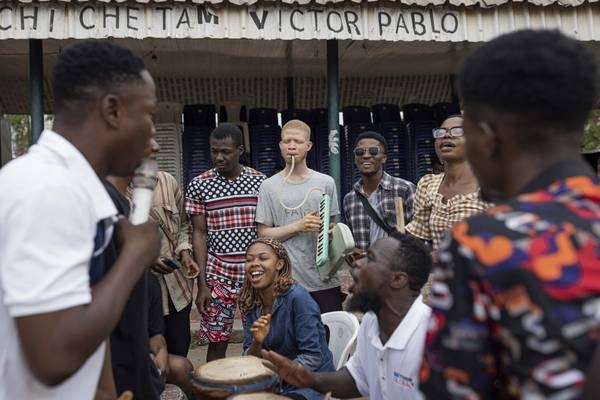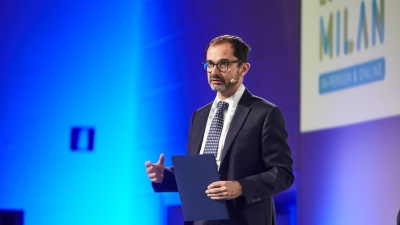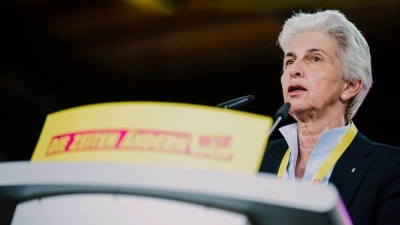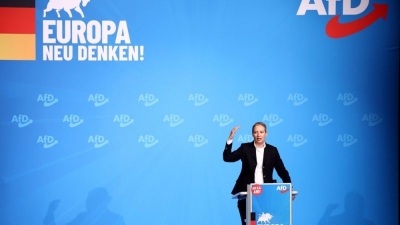As political elite gathers, China expects measures to boost economic growth and birth rate

A day before the opening of China’s annual lianghui or Two Sessions, hundreds of delegates were already milling around the Great Hall of the People in Beijing on Friday. Most were men in suits but there was a sprinkling of smartly dressed women, officers in uniform, a couple of Buddhist monks and people in various forms of traditional dress. These were among more than 2,000 members of the Chinese People’s Political Consultative Conference (CPPCC), a body that advises the Chinese Communist Party and serves as a kind of upper house of parliament. Its annual meeting, which starts on Saturday and lasts a week, runs alongside that of the National People’s Congress (NPC), China’s legislative body with around 3,000 members. Speaking to journalists beneath a crystal and gold chandelier in one of the Great Hall’s smaller rooms, CPPCC spokesman Guo Weimin said the body had submitted almost 30,000 proposals to government over the past five years. They focused on everything from economic development and food security to rural revitalisation and dealing with an ageing population. “It has played its role as the special consultative agency in the country’s governance system,” he said. The CPPCC includes representatives from China’s eight officially recognised minor political parties, which work with the Communist Party rather than in opposition to it. One of the small parties, the Jiusan Society, attracts intellectuals and is strongly represented in universities, while the Chinese Peasants’ and Workers’ Democratic Party draws many members from the medical profession. Usually dismissed as a “rubber stamp” parliament by western commentators, the NPC meeting will however approve important policies, particularly on the economy. Financial markets are expecting the meeting to set a goal for China’s economy to grow by more than 5 per cent in 2023 but some analysts are predicting the target could be as high as 6 per cent – twice the level of economic growth achieved in 2022. The congress is expected to announce a number of measures to boost the Chinese economy as it emerges from three years of zero-Covid restrictions and to support the troubled property market. And delegates have proposed a number of actions to address China’s low birth rate, including more rights for people who have children outside marriage. Xi Jinping won a third term as Communist Party general secretary last October and the NPC will confirm him in his third term as China’s president. Li Qiang, a former party secretary in Shanghai, will succeed Li Keqiang as premier with responsibility for managing the economy. Li presided over a widely criticised two-month lockdown in Shanghai last year and he is the first premier to have no experience of central government. But he is a close, long-standing ally of Xi, whose dominant position in the party and the state appears to be stronger than ever. Other personnel changes announced during the NPC meeting, which is expected to last around 10 days, will cement the grip Xi and his closest allies’ hold on power in China. And reforms of some government structures, including security agencies, are likely to bring the state more firmly under the control of the Communist Party. “Efforts are needed to deepen institutional reform in key areas and ensure that the Party’s leadership over socialist modernisation becomes more refined in institutional set-up, more optimised in the division of functions, more improved in institutions and mechanisms, and more efficient in operation and management,” the central committee of the Communist Party said in a communique this week. [ Beijing Letter: More protests are a bridge too far as China prepares for Two Sessions ] The meeting will also see China’s new foreign minister, Qin Gang, make his first appearance before the NPC and he will answer questions from the press early next week. China’s post-Covid reopening has been accompanied by an effort to mend diplomatic fences, successfully in the case of Australia but with mixed results in Europe. [ While China is the world’s most populous country, children there are a treasured and increasingly scare resource ] Beijing’s call for a ceasefire and peace negotiations in Ukraine has met with little support in Europe and has been flatly rejected in Washington. Meanwhile, the chairman of a new congressional committee in Washington this week said the US and China were engaged in “an existential struggle over what life will look like in the 21st century”.
Young Nigerians crave change but new president inspires little optimism
Puerto Rico facing slow recovery after hurricanes, earthquakes and Covid
:quality(70)/cloudfront-eu-central-1.images.arcpublishing.com/irishtimes/3XV2ADSBN5BYS6IWQIIOBS4KS4.jpg)
Home comforts: Inside the new $60m Irish arts centre in New York
:quality(70)/cloudfront-eu-central-1.images.arcpublishing.com/irishtimes/RX76M4NV37OY2UHM43FNVY3IS4.jpg)
Matt Hancock’s lockdown WhatsApps: the drip feed that is gripping Westminster
:quality(70)/cloudfront-eu-central-1.images.arcpublishing.com/irishtimes/KKRVZ6RHEPHN3H4IVSPQMCT2UM.jpg)
:quality(70)/cloudfront-eu-central-1.images.arcpublishing.com/irishtimes/IXPIQEQ3L3WVBEGH3SB5YXES3Q.jpg)



